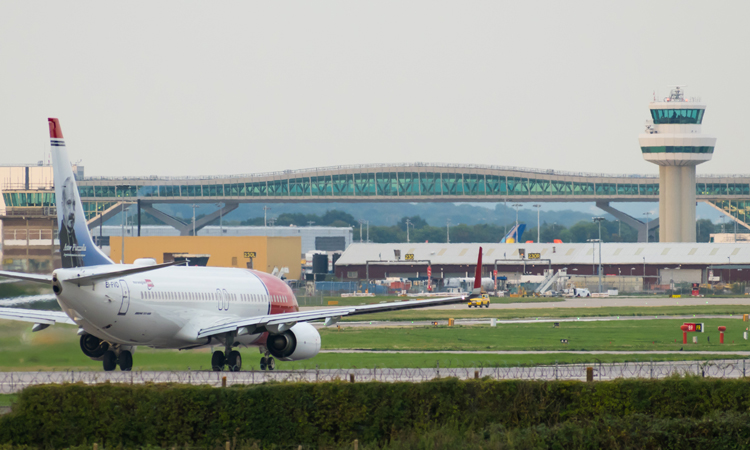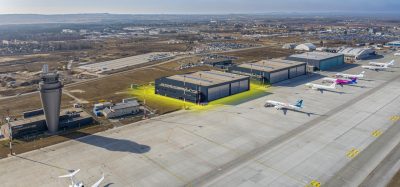Gatwick Airport publishes second Decade of Change sustainability policy
- Like
- Digg
- Del
- Tumblr
- VKontakte
- Buffer
- Love This
- Odnoklassniki
- Meneame
- Blogger
- Amazon
- Yahoo Mail
- Gmail
- AOL
- Newsvine
- HackerNews
- Evernote
- MySpace
- Mail.ru
- Viadeo
- Line
- Comments
- Yummly
- SMS
- Viber
- Telegram
- Subscribe
- Skype
- Facebook Messenger
- Kakao
- LiveJournal
- Yammer
- Edgar
- Fintel
- Mix
- Instapaper
- Copy Link
Posted: 21 June 2021 | International Airport Review | No comments yet
Looking ahead to 2030, Gatwick Airport’s second Decade of Change policy sets out further goals for the airport to achieve its net-zero by 2040 target.


London Gatwick Airport (LGW) has published its second Decade of Change sustainability policy, which looks ahead to 2030 and sets out the airport’s goals for the transition to becoming net-zero, contributing to local environmental stewardship and supporting the local economy, people and communities.
The airport’s 2030 goals take account of local and national sustainability priorities and will enable Gatwick to play its part in national and international action to deliver on the Paris Agreement and the United Nations’ (UN) Sustainable Development Goals (SDGs). The new Decade of Change policy – the second of its kind produced by Gatwick – focuses on a renewed set of 10 goals set over the next 10 years.
Transition to net-zero and further improving local air quality
Gatwick will work to reduce its own direct emissions (Scope 1 and 2) by a further 25 per cent by 2030 – so that emissions have reduced by 80 per cent against a 1990 baseline – as part of a science-based goal of reaching net-zero before 2040.
Additionally, the airport will work with airlines and fuel providers to implement the Sustainable Aviation decarbonisation roadmap and interim goals and set a science-based target for Gatwick.
Finally, the airport will work with transport partners to increase public transport and zero and ultra-low emission journeys to and from Gatwick to 60 per cent by 2030.
Local environment stewardship
Gatwick will work to achieve zero waste by ensuring that all materials used in operations, commercial activity and construction are repurposed for beneficial use – i.e. repaired, reused, recycled, etc. In addition, the airport will reduce potable water consumption by 50 per cent per passenger, compared to 2019 levels.
Furthermore, Gatwick will continue a sector-leading net gain approach to protecting and enhancing biodiversity and habitats surrounding the airport, including zero use of pesticides by 2030.
People and communities
Gatwick has committed to continuing to be a partner and advocate by continuing to invest resources in partnerships and projects which benefit the local economy and local people, as well as continuing to contribute to local and regional workforce skills partnerships and initiatives.
The airport has also outlined that it will work to increase workforce diversity and ensure accessibility and opportunity for colleagues and passengers with disabilities.
Finally, Gatwick will limit and, where possible, reduce the airport’s impact on local communities by working with partners and stakeholders to create the most noise efficient operation possible.
Stewart Wingate, CEO of Gatwick Airport, said: “We met or exceeded our first Decade of Change goals and, as we enter the second decade, our commitment to a sustainable Gatwick is stronger than ever. Our policy recognises the importance of taking an integrated approach to economic, societal and environmental issues and solutions.”
“By combining a healthy economy, sensible use of financial resources, human and technological innovation, teamwork and partnerships, over the next 10 years, Gatwick will work towards becoming a net-zero airport, conserving water and sustaining good jobs and strong, inclusive employment in order to benefit the local community, the environment and the economy,” he added.
Gatwick also reported on the airport’s sustainability achievements over the past year, which have been heavily impacted by the effects of COVID-19 and a significant downturn in passenger volumes.
Key achievements for 2020 that support the local community and environment include:
- 95 per cent of Gatwick flights being operated by the two cleanest categories of aircraft
- Reusing or recycling 67 per cent of the 3,787 tonnes of materials collected across the airport’s operations and maintaining zero untreated waste to landfill for the fifth consecutive year
- Gatwick’s Biodiversity Benchmark accreditation was renewed for the seventh consecutive year
- Gatwick spent £48 million with local and regional suppliers during 2020
- The Gatwick Foundation Fund awarded 23 grants totalling £100,000 to community groups that help over 15,000 people, and the Gatwick Airport Community Trust awarded grants totalling £230,000 to 113 projects
- More than 100 laptops were issued to support local students impacted by home schooling during the pandemic, and four more apprentices joined the airport’s engineering apprenticeship programme.
Related topics
Aircraft, Airside operations, COVID-19, Emissions, Sustainability, Sustainable development, Terminal operations, Workforce


















